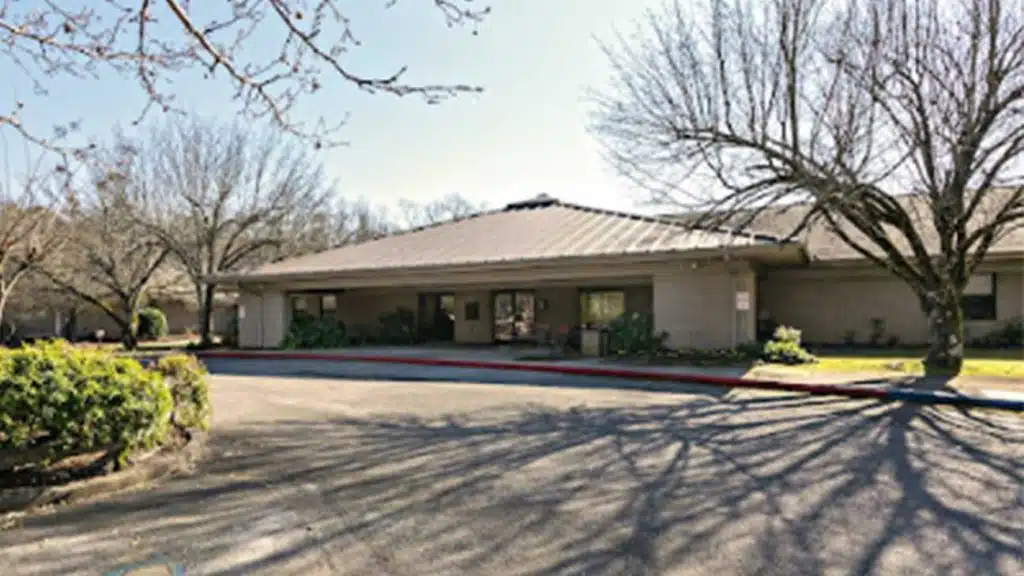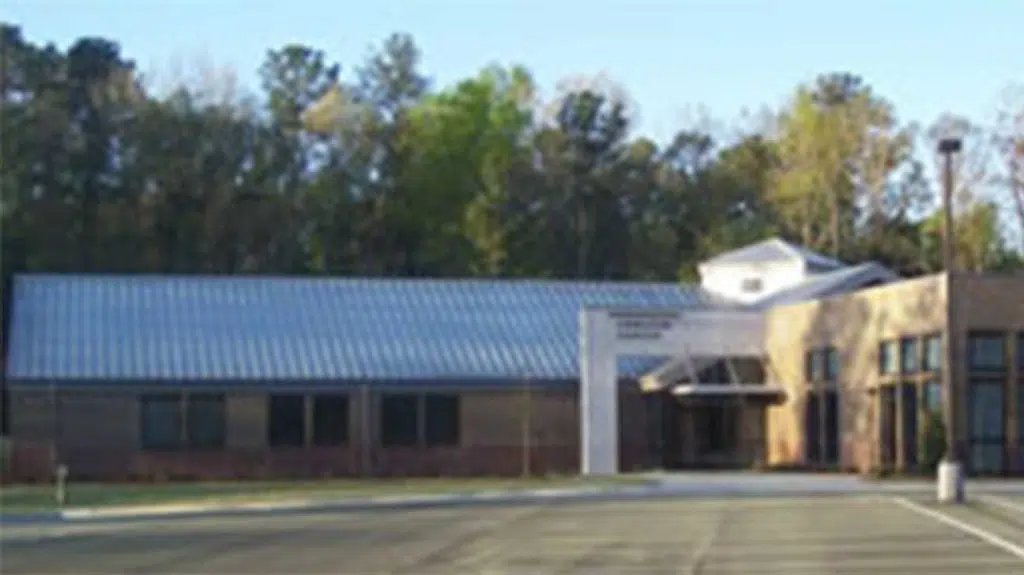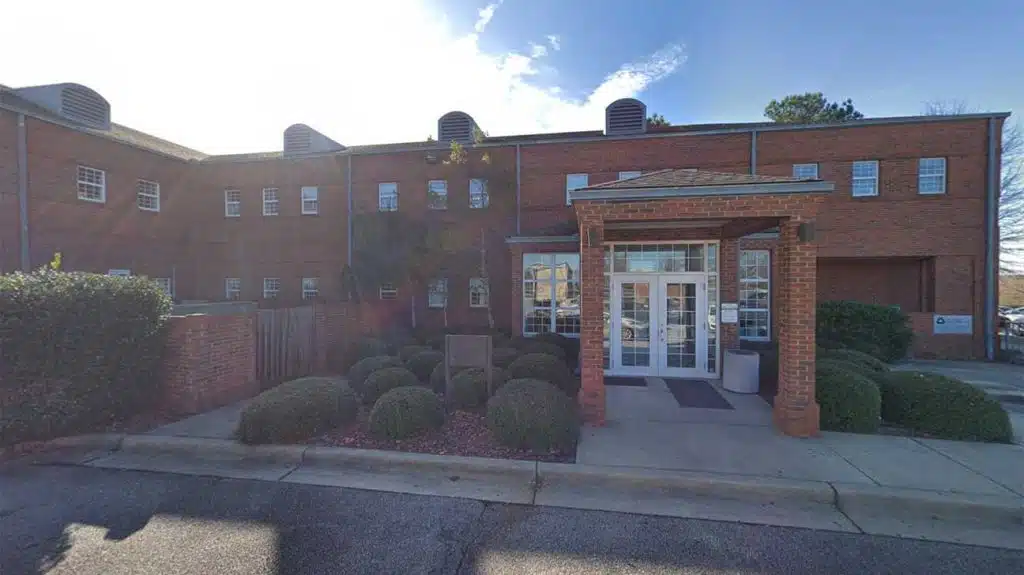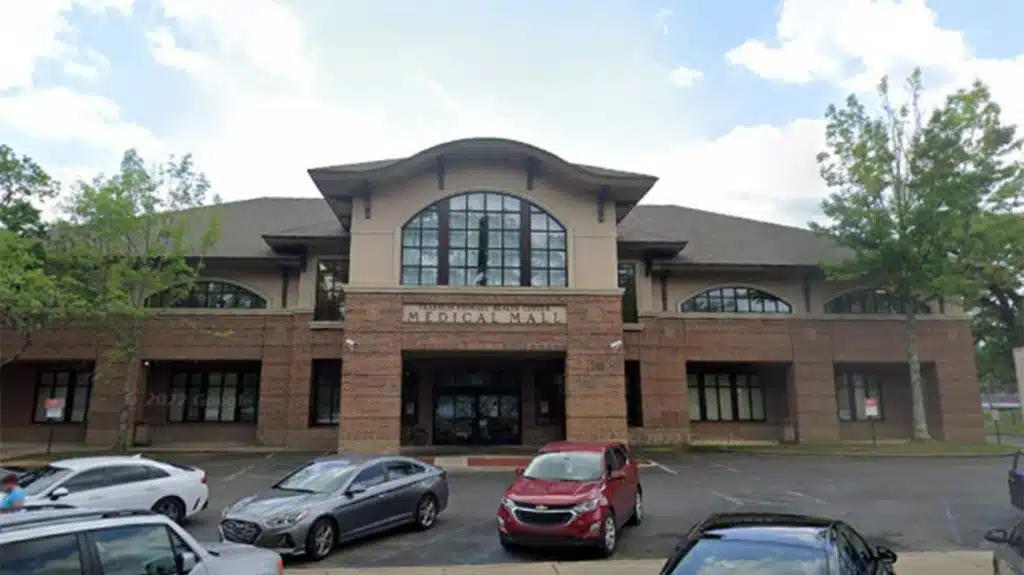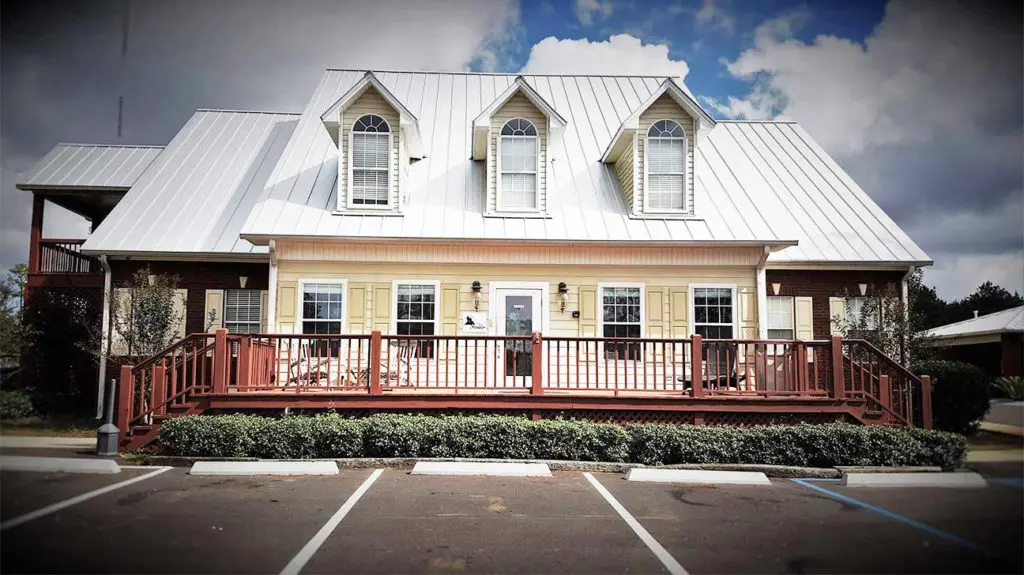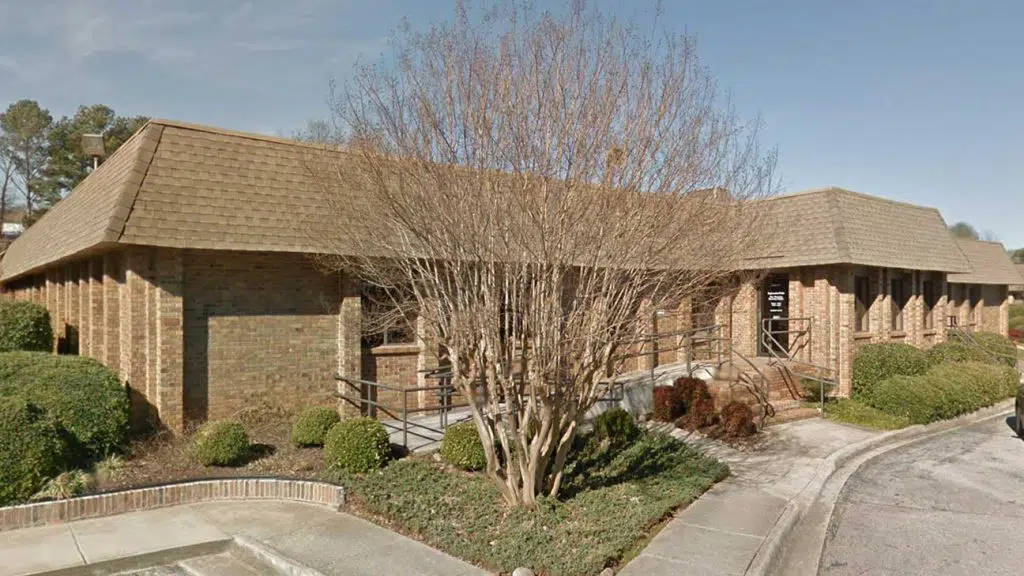
Adolescents and adults with substance use disorders and co-occurring disorders can find free treatment in the state of Alabama.
Free rehab centers in Alabama can provide the affordable, evidence-based treatment programs needed to break the cycle of addiction and get back on track to a healthy life.
Whether you live in Birmingham, Montgomery, or Tuscaloosa, these affordable rehab facilities can help you get started on the journey to sobriety in a safe and supportive environment.
Programs available include inpatient rehab, detoxification, and outpatient services, among other treatment options.
List Of Free Drug And Alcohol Rehab Centers In Alabama
The following treatment centers are fully or partially funded by grants or other funding, and/or accept public health insurance such as Medicaid.
We selected these rehab centers for their:
- accreditation
- certifications
- positive Google reviews
- client testimonials
- partnerships with valued organizations
- other marks of quality care
1. Bradford Health Services Madison Residential Facility, Madison, Alabama
Bradford Health Services is an organization that provides alcohol and drug treatment services. Individualized treatment services ensure that care is personalized.
The facility’s range of recovery programs, which span inpatient and outpatient treatment, and a detox center, allow clients the opportunity to progress along a care continuum.
While in treatment, clients are introduced to 12-step programs, such as Alcoholics Anonymous and Narcotics Anonymous, to support aftercare and continued recovery.
Trusted features:
- Joint Commission accreditation
- state licensure
- evidence-based treatment
Levels of care:
- residential treatment
- inpatient treatment
- detox
- partial hospitalization program (PHP)
- intensive outpatient program (IOP)
- outpatient program (OP)
- medication-assisted treatment (MAT)
Treatment services:
- individual therapy
- group therapy
- family therapy
- cognitive behavioral therapy (CBT)
- motivational interviewing (MI)
- trauma-informed therapy
- anger management
- Matrix Model
- telehealth
- relapse prevention
- 12-step support groups
- peer support
- buprenorphine treatment
- naltrexone treatment
Payment options:
- private health insurance
- Medicaid
- other state health insurance
- TRICARE
- self-pay
- government funding
- payment assistance
Location and contact information:
1600 Browns Ferry Rd.
Madison, AL 35758
(256) 461-7272
2. Bridge Inc. RightStep Recovery Center For Teens, Wedowee, Alabama
Bridge Inc. RightStep Recovery Center, also known as The Bridge, is a substance abuse treatment provider for adolescents experiencing alcohol and drug abuse.
The treatment facility partners with local schools, mental health centers, juvenile and family courts, and other organizations to help its clients.
Treatment is provided regardless of the client’s ability to pay.
Trusted features:
- state licensure
- non-profit status
- evidence-based treatment
Levels of care:
- residential treatment
- inpatient treatment
- outpatient program (OP)
Treatment services:
- individual therapy
- group therapy
- family therapy
- cognitive behavioral therapy (CBT)
- motivational interviewing (MI)
- trauma-informed therapy
- anger management
- relapse prevention
- telehealth
Payment options:
- private health insurance
- Medicaid
- government funding
- payment assistance
Location and contact information:
19 Woodland Ave.
Wedowee, AL 36278
(256) 276-4252
3. Central Alabama Wellness, Clanton, Alabama
Central Alabama Wellness is a non-profit alcohol and drug addiction treatment provider that also provides mental health services.
Priority admission is given to pregnant women, women with dependent children, and people who use IV drugs.
Trusted features:
- state licensure
- non-profit status
- evidence-based treatment
Levels of care:
- outpatient program (OP)
Treatment services:
- individual therapy
- group therapy
- family therapy
- cognitive behavioral therapy (CBT)
- motivational interviewing (MI)
- Matrix Model
- trauma-informed therapy
- anger management
- relapse prevention
- telehealth
Payment options:
- private health insurance
- Medicare
- Medicaid
- self-pay
- sliding fee scale
- government funding
- payment assistance
Location and contact information:
110 Medical Center Dr.
Clanton, AL 35045
(205) 651-0077
4. East Alabama Mental Health Center (EAMHC), Phenix City, Alabama
EAMHC uses evidence-based practices to help its clients to overcome drug and alcohol addiction.
In addition to substance abuse services, the facility also offers treatment for mental health issues and intellectual disabilities. Treatment is not denied based on an individual’s inability to pay.
Trusted features:
- state licensure
- non-profit status
- evidence-based treatment
Levels of care:
- intensive outpatient program (IOP)
- outpatient program (OP)
- medication-assisted treatment (MAT)
Treatment services:
- individual therapy
- group therapy
- family therapy
- cognitive behavioral therapy (CBT)
- motivational interviewing (MI)
- trauma-informed therapy
- anger management
- relapse prevention
- telehealth
- buprenorphine treatment
- naltrexone treatment
Payment options:
- private health insurance
- Medicare
- Medicaid
- TRICARE
- self-pay
- sliding fee scale
- government funding
- payment assistance
Location and contact information:
3170 Martin Luther King Jr. Pkwy. S.
Phenix City, AL 36869
(334) 298-2405
5. Franklin Primary Health Center, Mobile, Alabama
Franklin Primary Health Center is a non-profit medical center that was founded to provide comprehensive services to low-income members of the community.
The facility has a drug and alcohol addiction treatment center. It also has a policy of offering discounted services to all uninsured clients below 200% of the federal poverty level (FPL).
Trusted features:
- Joint Commission accreditation
- state licensure
- non-profit status
- evidence-based treatment
Levels of care:
- detox
- partial hospitalization program (PHP)
- outpatient program (OP)
Treatment services:
- transitional housing/sober living
- individual therapy
- group therapy
- family therapy
- dual diagnosis treatment
- cognitive behavioral therapy (CBT)
- trauma-informed therapy
Payment options:
- private health insurance
- Medicare
- Medicaid
- TRICARE
- self-pay
- sliding fee scale
- government funding
- payment assistance
Location and contact information:
1303 Dr. Martin Luther King Jr. Ave.
Mobile, AL 36603
(251) 432-4117
6. Team Enforcement Awareness With Resolutions (TEARS) Inc., Phenix City, Alabama
TEARS is a non-profit treatment facility that offers substance abuse treatment and mental health services for adolescents.
The facility provides housing for young people who have run away from home or otherwise find themselves homeless, in addition to youth mentor programs, an abstinence program, and peer support.
Referrals are provided for access to state-funded rehabilitation facilities.
Trusted features:
- state licensure
- non-profit status
- evidence-based treatment
Levels of care:
- outpatient program (OP)
Treatment services:
- individual therapy
- group therapy
- family therapy
- cognitive behavioral therapy (CBT)
- anger management
- telehealth
- relapse prevention
- peer support
Payment options:
- Medicaid
- self-pay
- sliding fee scale
- government funding
- payment assistance
Location and contact information:
1011 S. Railroad St.
Phenix City, AL 36867
(334) 291-6363
7. The Shoulder, Spanish Fort, Alabama
The Shoulder is a Christian-based, 12-step-oriented addiction treatment center. The facility has been providing gender-specific treatment since 1988.
Special consideration is given to people with addiction who are pregnant, using IV drugs, have dependent children, or are HIV-positive.
Trusted features:
- state licensure
- non-profit status
- evidence-based treatment
Levels of care:
- residential treatment
- inpatient treatment
- aftercare
Treatment services:
- individual therapy
- group therapy
- family therapy
- gender-specific treatment
- cognitive behavioral therapy (CBT)
- motivational interviewing (MI)
- Matrix Model
- anger management
- trauma-informed therapy
- relapse prevention
- transitional housing/sober living
- 12-step support groups
Payment options:
- self-pay
- government funding
- payment assistance
Location and contact information:
31214 Coleman Ln.
Spanish Fort, AL 36527
(251) 626-2199
8. Wellstone, Huntsville, Alabama
Wellstone is a non-profit community provider of behavioral health services. Services are provided to children, adolescents, and adults.
In fact, Wellstone accepts all residents in need of addiction treatment, regardless of their ability to pay for it.
Trusted features:
- state licensure
- non-profit status
- evidence-based treatment
Levels of care:
- intensive outpatient program (IOP)
- outpatient program (OP)
- medication-assisted treatment (MAT)
Treatment services:
- individual therapy
- group therapy
- family therapy
- cognitive behavioral therapy (CBT)
- motivational interviewing (MI)
- Matrix Model
- anger management
- trauma-informed therapy
- telehealth
- relapse prevention
- buprenorphine treatment
- naltrexone treatment
Payment options:
- private health insurance
- Medicaid
- Medicare
- self-pay
- sliding fee scale
- government funding
- payment assistance
Location and contact information:
4040 Memorial Pkwy. SW
Huntsville, AL 35802
(256) 533-1970
Ways To Access Free Drug Rehab Programs In Alabama
There are several different ways to access free rehab facilities in the state of Alabama, including through the use of federal grant funding, Alabama Medicaid coverage, and more.
Alabama Medicaid For Addiction Care
Medicaid is a government-funded health insurance program designed for children ages 18 years or younger, low-income people, pregnant women, and people with disabilities.
People who qualify for Alabama Medicaid may be able to access free substance use treatment at a facility that accepts Medicaid coverage.
Federal Grant Funds For Behavioral Health Treatment
If you do not qualify for Medicaid insurance, you may be eligible to receive free care by attending a program that is fully or partially funded through government grants.
The most prominent grant in Alabama is the Substance Use Prevention, Treatment, and Recovery Services Block Grant (SUBG), which is provided by the Substance Abuse and Mental Health Services Administration (SAMHSA).
In 2023, Alabama received nearly $71 million in federal funds through SUBG to be used for substance abuse and mental health treatment for people in need.
Additional Ways To Receive Free Treatment Services In Alabama
There are several other resources in the state of Alabama for people who do not qualify for government grant funds or Medicaid.
Some of the other ways to receive access to free addiction treatment plans include:
- attending a faith-based rehab center
- attending an Alabama state-funded rehab facility
- using a sliding fee scale for payment based on income
FAQs About Free Rehab Centers In Alabama
It can be difficult deciding on the right rehabilitation facility. To further ease your search process, we have provided answers to a few commonly asked questions about free addiction care.
Do All Free Rehab Centers In Alabama Accept Medicaid?
Most facilities that offer free or low-cost care will accept Medicaid coverage for substance abuse services.
Are There Free Rehab Programs In Alabama For Pregnant Women?
Yes, there are some rehab centers for pregnant women in Alabama that are free of cost.
Do Free Drug And Alcohol Rehab Centers Offer Inpatient Treatment?
There are many free rehab facilities in Alabama that offer both outpatient rehabilitation services and residential treatment.
Find Substance Abuse Treatment Today
If you or a loved one is ready to begin the recovery journey, call Addiction Resource today for further assistance.
Updated on March 11, 2024
Addiction Resource aims to provide only the most current, accurate information in regards to addiction and addiction treatment, which means we only reference the most credible sources available.
These include peer-reviewed journals, government entities and academic institutions, and leaders in addiction healthcare and advocacy. Learn more about how we safeguard our content by viewing our editorial policy.
- Alabama Department of Mental Health — Grants
https://mh.alabama.gov/grants/ - Substance Abuse and Mental Health Services Administration (SAMHSA) — Grant Awards By State
https://www.samhsa.gov/grants-awards-by-state/MA/2022

